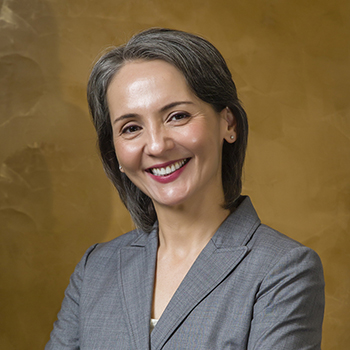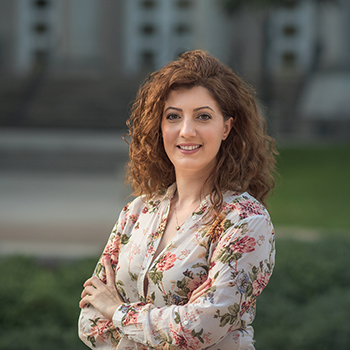Published: April 15, 2022

End-stage renal disease, or ESRD, is a serious medical condition caused by failure of the kidneys that also has significant social and economic implications. The only treatments for end-stage renal disease are regular courses of dialysis or a kidney transplant.
For individuals with ESRD who do not have access to treatment, either because they are uninsured or they may not be a legal residents of the U.S., often their only option is to resort to going to the emergency room in order to receive dialysis. However, mandatory hospital and even county protocols structured to prevent emergency room congestion can result in an individual seeking dialysis treatment being sent home if their medical status is not deemed life-threatening at that time.
Unfortunately, these policies for the most part are ineffective at preventing ER congestion and also have the potential to negatively impact these patients’ health by delaying treatment.
So is there a way to strike a balance between alleviating already strained emergency room resources while still providing life-saving care to vulnerable patients with very limited options?
Joining me to discuss their research on this very topic are Sila Çetinkaya with Southern Methodist University and Olga Bountali with the University of Toronto.
The key point here is that there is really no other real option for this group of patients and this is what makes the situation sad. And at the end of the day, the existence of this protocol and this compassionate dialysis mechanism implies inconsistent treatment. So the impact of inconsistent treatment when we have to do with a chronic disease is very significant as you probably can imagine, because it leads to deterioration, progressive deterioration. So the impact is huge.
Interviewed this episode:

Sila Çetinkaya
Southern Methodist University
Sila Çetinkaya is Department Chairperson and Professor of OREM and Cecil H. Green Professor of Engineering in the SMU Lyle School of Engineering. She holds courtesy appointments with ITOM in the SMU Cox School of Business and with Internal Medicine in the UT Southwestern Medical Center. Çetinkaya’s research interests include supply chain and healthcare analytics, stochastic optimal control theory, and applied probability. Her publications appeared in the most reputable outlets of industrial engineering and management science including Operations Research, Management Science, Production and Operations Management, IISE Transactions, Informs Journal of Applied Analytics (previously, Interfaces), and Naval Research Logistics, among many others. Her research program has been funded by multiple grants from National Science Foundation (NSF), Department of Education, Texas Engineering Education Coordination Board, and industry. She is a department editor of IISE Transactions and an associate editor of Naval Research Logistics. Çetinkaya’s early career accomplishments were recognized by NSF CAREER Award in 2001 and IISE Outstanding Young Industrial Engineer Award in 2003. She was named IISE Fellow in 2012 for outstanding lifetime contributions to industrial engineering.

Olga Bountali
University of Toronto
Olga Bountali is an Assistant Professor of Operations Management at the University of Toronto. She is cross-appointed in the Institute of Communication, Culture, Information and Technology and the Department of Management at University of Toronto Mississagua, and the Rotman School of Management. She holds a Ph.D. from the Operations Research Group of the Department of Mathematics, at the University of Athens. Prior to joining the University of Toronto, Olga was a postdoctoral fellow at Southern Methodist University (OREM Department) and Koç University (Industrial Engineering Department).
Her research interests are in operations management with a focus on stochastic modeling and complex decision-making under competition. In particular, her expertise lies in applying economic analysis to quantify how the behavior of self-interested customers impacts service operations, revenues, and the delivery of health care. She has active collaborations with people from diverse disciplines, including physicians and practitioners at Parkland Memorial Hospital and UT Southwestern in the DFW Metroplex. Olga is also a research fellow at the Sandra Rotman Centre for Health Sector Strategy.
Episode Transcript
Ashley Kilgore:
End-stage renal disease, or ESRD, is a serious medical condition caused by failure of the kidneys that also has significant social and economic implications. The only treatment for end-stage renal disease are regular courses of dialysis or a kidney transplant. For individuals with ESRD who do not have access to treatment, either because they are uninsured, or they may not be a legal resident of the US, often their only option is to resort to going to the emergency room in order to receive dialysis.
Ashley Kilgore:
However, mandatory hospital and even county protocols structured to prevent emergency room congestion can result in an individual seeking dialysis treatment being sent home if their medical status is not deemed life-threatening at that time. Unfortunately, these policies, for the most part, are ineffective at preventing ER congestion, and also have the potential to negatively impact these patients’ health by delaying treatment.
Ashley Kilgore:
So, is there a way to strike a balance between alleviating already strained emergency room resources, while still providing life-saving care to vulnerable patients with very limited options? Joining me to discuss their research on this very topic, are Sila Çetinkaya, with Southern Methodist University, and Olga Bountali, with the University of Toronto.
Ashley Kilgore:
Sila, Olga, thank you so much for joining me to discuss your work.
Sila Çetinkaya:
Thank you, Ashley. It’s a pleasure to be here.
Olga Bountali:
Thank you, Ashley. It’s our pleasure. Thank you for hosting us.
Ashley Kilgore:
Now, I understand this is an area of research the two of you have been collaborating on, along with others, for quite some time. Can you share a little background on that?
Sila Çetinkaya:
Of course. The inspiration for this project came as I was visiting Parkland Memorial Hospital while working on a research proposal with a group of collaborators from UT Southwestern Medical Center. That group included the Nephrology Team, but was targeting another patient population. I was invited to tour the old Parkland facility, since the first time I visited, they had moved into a brand new facility.
Sila Çetinkaya:
But in the old facility, while visiting the emergency room, I could physically see the compassionate dialysis patients waiting to receive treatment. The ER was pretty crowded, and I could tell that this specific patient group, they were not trauma patients, but they were seriously ill. And one question led to another, talking with the attending physicians in ER and the nephrologists in ER, and I learned about the practice of compassionate dialysis.
Olga Bountali:
So, one thing I want to highlight here, is that coming from Europe, so at that point I was a post-doc under Sila’s supervision. So what I want to highlight is that coming from Europe, and having seen all the inefficiencies in the healthcare system back in my home country, I was not expecting to see similar inefficiencies in the healthcare system in North America. So when Sila talked about this project, this was what motivated me to try to do some work in a new domain in the healthcare sector, and try to contribute to the society through our research.
Ashley Kilgore:
Can you provide some insight into what the current protocols are like for when an uninsured individual comes into the emergency room seeking dialysis treatment for ESRD?
Olga Bountali:
Sure. So, the current protocol is as follows: when a non-insured patient shows up at Parkland Memorial Hospital, the medical personnel cannot admit the patient directly for dialysis because of the absence of insurance to bear the cost, since dialysis is a very costly process. So, the idea is that the patient needs to go through the emergency room, where the patient undergoes the first screening and assessment that consists of lab tests and several clinical screening: medical personal checking symptoms like temperature, vomiting, diarrhea, et cetera, et cetera.
Olga Bountali:
Now, the punchline of the protocol is that unless the patient is in a life-threatening condition, we cannot directly admit the patient for dialysis. And no matter what, there is a certain fraction of patients that needs to be sent back home, needs to be rejected on a daily basis; because as I said, dialysis is a very costly process and there is limited capacity in the hospital, in the dialysis room.
Olga Bountali:
So, the idea of bringing the emergency room into the picture is to filter and try to find the most urgent, the most critical patients. So having said that, in principle, doctors, medical personnel, do try their best to admit the most urgent patients, the most critical patients, and be very fair. But the ugly truth is that this is not easy to happen in practice. And the most important reason, the primary reason, is that the patients do not show in a consolidated way, so the doctors cannot know or perorate during the day if later on, they will have visits for more urgent and more critical patients. And hence, they have to make decisions on the spot; and decisions are impacted by capacity. So as you can probably imagine, this creates potential unfairness in the picture. So it is a problem that has to do with equity, and as you said, it is a very vulnerable group of patients that deserves better attention
Sila Çetinkaya:
Since the patients do not have access to regular care, to regularly scheduled dialysis, and this is the only treatment option to for them, and sooner or later, they find out that they are subject to a screening protocol. And as a result of the screening protocol, they may be rejected, some of the patients also show up in the system for treatment, perhaps in a premature fashion; that they are not necessarily in the critical, in the direful condition that they should be as per the screening protocol.
Sila Çetinkaya:
But because of the nature of the underlying disease, sooner or later, these patients need treatment. And sooner or later, they are indeed in the emergency condition, in the direful condition as described by the screening protocol. So it’s a very difficult problem to assess whether or not a patient should be accepted or rejected. But there are county set expectations, in terms of the blood count, and in terms of the other indications of the emergency condition of the patient. And it’s a fact that some patients need treatment more urgently than the others. And systemically, a certain percentage of patients are rejected despite the best intentions and the best efforts of the medical personnel.
Ashley Kilgore:
Can you share a bit more about the populations who are most impacted by these policies? You mentioned they may not have options beyond visiting emergency rooms for medical care. How are they impacted by these existing protocols?
Sila Çetinkaya:
Very broadly, people who are uninsured are directly impacted. But US citizens who are chronically ill are eventually covered under Medicaid, regardless of their insurance status; because chronical illness qualifies them for this kind of treatment. As a result, most of the patients undergoing compassionate dialysis are illegal immigrants, undocumented immigrants. This is perhaps the biggest percentage of the entire compassionate dialysis population. And also, in some cases, although the patient may have insurance, they may not be making the best use of their insurance due to various reasons, including mental illness. And they may be in a direful emergency situation because for example, they missed their regularly scheduled appointment, and they end up in the emergency room seeking compassionate dialysis.
Olga Bountali:
And the key point here is that there is really no other real option for this group of patients; and this is what makes the situation sad. And at the end of the day, the existence of this protocol and this compassionate dialysis mechanism implies inconsistent treatment. So, the impact of inconsistent treatment when we have to do with the chronic disease, is very significant as you probably can imagine, because it leads to deterioration, progressive deterioration. So, the impact is huge.
Ashley Kilgore:
From the picture you’ve painted, this sounds like a very complex, if not nearly impossible problem to address. Could you walk us through the approach or approaches you’ve taken in your research?
Olga Bountali:
Of course. So, after several visits, and visits at the hospital and interviews with doctors, other medical personnel, and the administrators board, we started with a stylized queuing model, which was based on patient flow observations from our visits and interviews. Using this stylized stream model, we were able to use some measures to quantify measures that reflect metrics that both the system, the hospital, needs to see as parameters, and other metrics that reflect the patient condition.
Olga Bountali:
So on the system, on the hospital’s side, we are talking about the utilization of resources, the wait times, and the number of patients, and how crowded the emergency and the dialysis room are at an arbitrary time instant. And on the patient’s side, we are talking about the number of treatments they eventually receive, the delays they are experiencing, the number of the rejections, they may experience in every attempt they make for receiving treatment.
Olga Bountali:
So, after quantifying these measures and computing these measures, we were able to provide insights on the impact of the existing protocol, and reveal some shielding effect that are in place. So we were able to determine whether this protocol is at all useful, and under what circumstances; and what has to be done in order to make the protocol more effective, or less hurting in terms of a patient outcomes.
Olga Bountali:
And following this work, we continued with a combination of analytical and empirical analytical medical simulation approaches. And we considered different alternatives in terms of systemic solutions, that were focused on, “How can we modify the existing protocol to improve patient experience and delivery of care? And how can potentially scheduling patients help and become, make things more effective?”
Sila Çetinkaya:
Currently, there is not a way to provide scheduled dialysis to this patient population. The existing law is such that you cannot offer this kind of treatment to the uninsured population; and this population in particular, they also do not have any coverage offered by government. So, scheduling is only a hypothetical solution; but of course it is intuitive. It is expected that scheduling this patient population would be helpful, in order to alleviate the load on the system, and in order to improve patient outcomes.
Sila Çetinkaya:
And our work has actually provided some quantitative justification for this kind of thinking. And also, our work provided some quantitative justification to improve capacity utilization in making decisions regarding the screening outcome, so that whenever we have excess capacity, we use it accordingly. And whenever we are under pressure, and we do not have much capacity, we adjust the operation of the system accordingly.
Ashley Kilgore:
So how, ultimately, do you think a better balance can be reached? What needs to change?
Sila Çetinkaya:
Well, we are hoping that our results will inform practice, our results will inform decisions of policy makers. The ideal solution, in my mind, is to find a way of funding these patients. Of course, it may or may not be possible. Medical professionals, especially county hospitals, constantly struggle with this kind of problem. And alternative solutions have been found, such as finding ways to qualify these patients for insurance, or finding some donor funding to help this patient population.
Sila Çetinkaya:
But in the meantime, I think it is also useful to provide the actual reasons, to examine the actual reasons associated with unintended consequences of this kind of screening protocol. And I feel that that’s where our contribution is.
Olga Bountali:
And I believe that the message that our work tries to pass can also go beyond that. And I believe it boils down to the mentality behind the existing protocols. We were very lucky to have medical collaborations that were very receptive and very open, and they really trusted our work and ideas and our thoughts. And they were very appreciative of that.
Olga Bountali:
But I believe that both Sila and I realized that, during the process, that things could have been better if in the past there were not some mentality barriers. For example, the idea that this particular group of patients constitutes only 2 to 5% of the care population; and hence, it is not going to make a huge impact if we focus on that. It proved to be totally wrong, because of the nature of the chronic disease.
Olga Bountali:
And we were able to prove that although we have to deal with a very small percentage of care population, this small percentage is responsible for all almost 30% of the ER visits. So it does contribute very significantly to the ER burden. And similar things that we hope that once are highlighted, and thank you, Ashley, for helping us spread the word, will facilitate openness and a different mentality around the healthcare delivery.
Ashley Kilgore:
You’re very welcome. It’s really been a pleasure to learn about and share your work. So, to look at this from another angle, obviously, throughout the COVID-19 pandemic, the strain placed on hospital emergency rooms has been unprecedented. How can your insight help in these conditions?
Olga Bountali:
So, under the COVID era, it is true that the ERs all around the world were under tremendous pressure; and the picture is much worse than it used to be for any ER. So in this sense, we believe that the impact of our work becomes more pronounced, in the sense that if you can smoothen the process, and make it more predictable for the groups that you are already expecting to visit the ER, like the group of our work. And if you can have savings, in terms of wait times for these groups of patients, this will allow you room to breathe. This will allow you more space, and will give you more resources that you can use them more efficiently toward the non-predictable COVID-related incidents and patients that the emergency room personnel will have to face. So I believe that the impact becomes much more pronounced under the COVID era.
Ashley Kilgore:
Sila, Olga, I want to thank you both, not only for joining me today, but for the life-saving work you’re doing. Is there anything else that either of you would like to share that we haven’t touched on before we wrap up?
Sila Çetinkaya:
Working to help improve conditions for these patients and the providers who treat them has been a very rewarding experience, and we sincerely hope our work can help impact policy in the long run. I am personally also hopeful that the results lay out a quantitative foundation for decision making; because given our results, it’s no longer about anecdotal evidence regarding long waiting times, as we have been able to quantify them systemically. As a result, I certainly believe that our analysis can indeed guide informed decisions that have better insight regarding the future of the system and patient outcomes.
Olga Bountali:
I totally agree, couldn’t agree more. And I hope that this will encourage more researchers to contribute to this sector.
Ashley Kilgore:
Want to learn more? Visit resoundingthehuman.com for additional information on this week’s episode and guests. The podcast is also available for download or streaming from Apple Podcasts, Google Play, Stitcher, and Spotify. Wherever you listen, if you enjoy Resounding the Human, please be sure to leave a review to help spread the word about the podcast. Until next time, I’m Ashley Kilgore, and this is Resoundingly Human.
